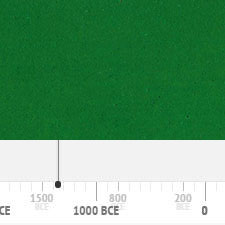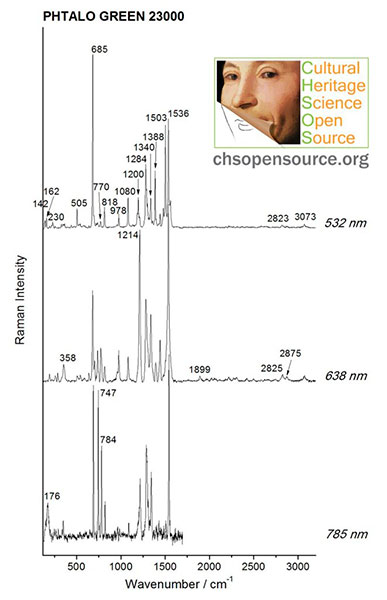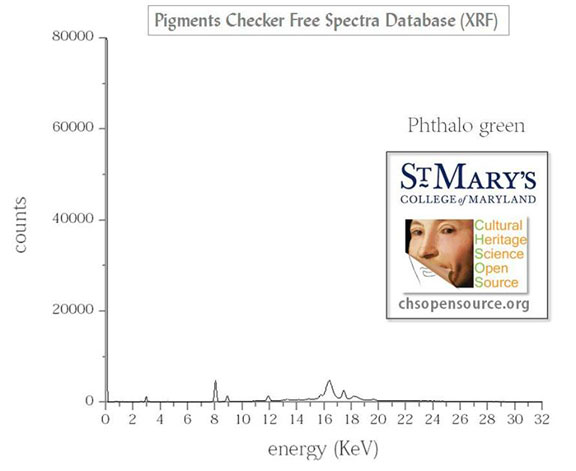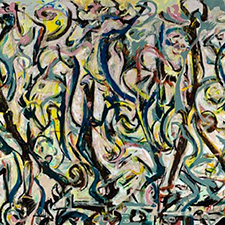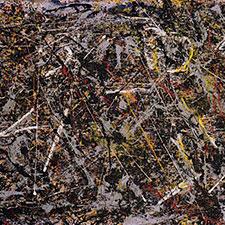Phthalocyanine Green
Synthetic pigment known since 1938Composition and Properties of Phthalocyanine Green
Phthalocyanine green is a modern synthetic organic pigment with the following formula:
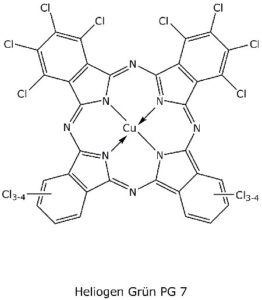
The pigment is unaffected by heat and chemicals and is extremely lightfast.
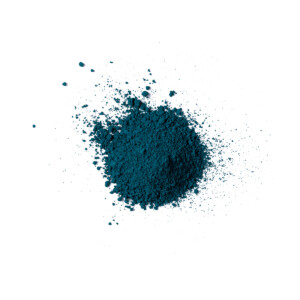
Pigment
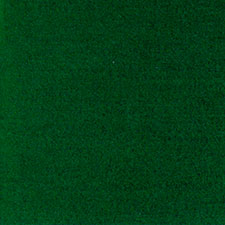
Painted swatch
Video: 'Peter Fiore Demonstrates How to Use Phthalo Green' by Bill Inman
Video: 'Color Spotlight: Phthalo Green' by In Liquid Color
Names of Phthalocyanine Green
Alternative names
Heliogen green, Phthalo green
Color Index
PG 7, CI 74260
Word origin
Phthalic is a shortening of the word naphthalic from oriental naphtha = oil, -cyanine from Greek kuanos = dark blue.
Phthalocyaningrün
German
Vert de phtalocyanine
French
Verde ftalocianina
Italian
Verde de ftalocianina
Spanish
Preparation of Phthalocyanine
The pigment is prepared by a reaction of the pigment phthalocyanine blue with aluminum chloride. This reaction causes a substitution of hydrogen atoms for chlorine atoms at the aromatic nuclei.
History of Use
The commercial production of the pigment started in 1938 and the pigment has been used in many areas besides artists’ pigments. Jackson Pollock and Francis Bacon were fond of using Phthalocyanine green among other artists.
Examples of use
Jackson Pollock, Mural, 1943
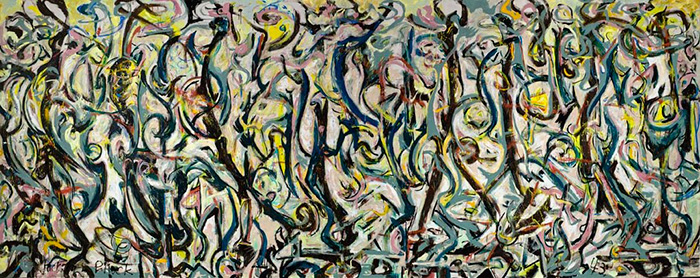
Identification
Fiber Optics Reflectance Spectra (FORS)
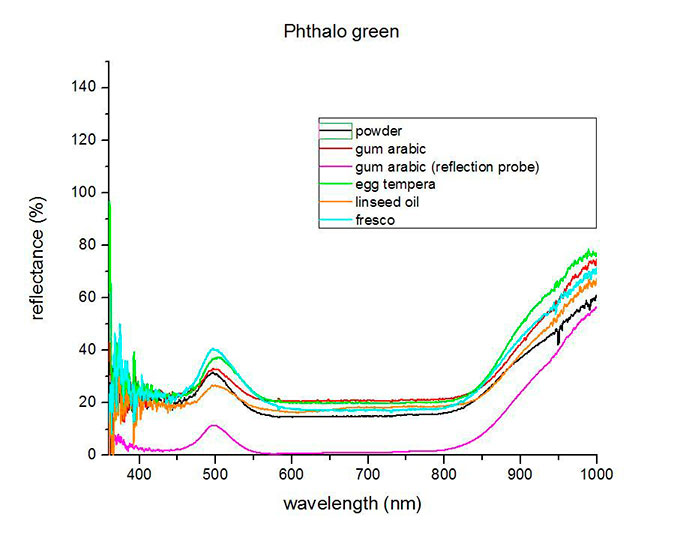
Spectra by A. Cosentino, Cultural Heritage Science Open Source (CHSOS)
Raman Spectrum
X-Ray Fluorescence Spektrum (XRF)
References
(1) Gianluca Poldi and Simone Caglio, Phthalocyanine identification in paintings by reflectance spectroscopy. A laboratory and in situ study, Optics and Spectroscopy 114(6).
(2) Alice Dal Fovo et al., Multianalytical non-invasive characterization of phthalocyanine acrylic paints through spectroscopic and non-linear optical techniques, Spectrochimica Acta Part A: Molecular and Biomolecular Spectroscopy 208 (2019) 262– 270.
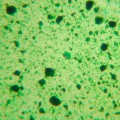
Microphotograph
image © Volker Emrath
Further Reading
References
(1) P. Erk, H. Hengelsberg: Phthalocyanine Dyes and Pigments in Porphyrin Handbook 19 (2003), p. 105–149.
(2) S. Muntwyler, J. Lipscher, HP. Schneider, Das Farbenbuch, 2nd. Ed., 2023, alataverlag Elsau, pp. 220-21.

